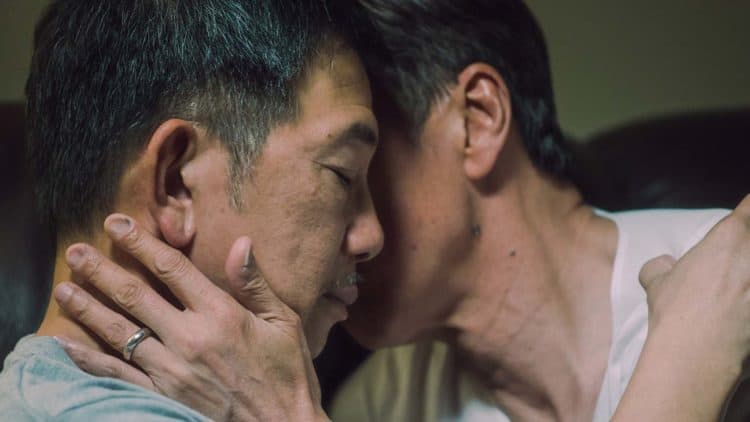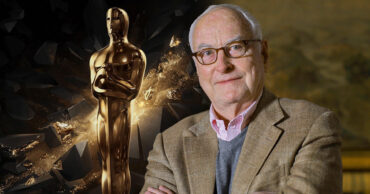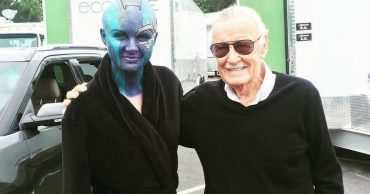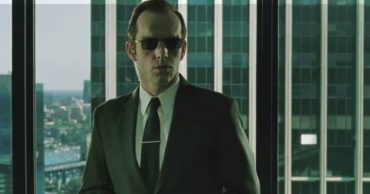
Easily the biggest highlight of the UK LGBT film calendar, the BFI Flare is a can’t miss event for cinephiles both queer and heteronormative. Taking place every year at the BFI on Southbank in London, it celebrates new and established films with lesbian, gay, bisexual, transgender and queer content. Founded in 1986, the ten day festival is the biggest festival of its kind in Europe, attracting over 25,000 attendees every year.
Meant to take place between March 18 to March 29, the film festival, under the guidance of the British government, has been cancelled due to the coronavirus, although many films should be available via the Digital Library. The festival is split into three themed-strands: Hearts, tackling films about love; Minds, reflections on art and politics; and Bodies, focusing more on sex and transformation. This is accompanied by a short program and the Best of Year, allowing you to catch up on the four best queer films released in the past 12 months. Accompanied by various parties, and it’s easily one of the most fun festivals around.
To help you get an idea of what will be playing at BFI Flare, what to catch, and what to keep your eye on in later months, we have compiled this list of ten can’t miss films. Ranging from Oscar-nominated performances to tender portraits of youth to deep explorations of queer sexuality, our list is your essential guide to the best and brightest films coming out of the festival. Read on below to see what we’ve picked. Disagree with our selections, let us know in the comment section below.
Suk Suk
A tender and quiet film, Suk Suk tells the story of two older men in Hong Kong falling in love. While both proud of their families, they realise that what they share is a very deep bond that cannot be ignored so easily. Playing earlier this year at the Berlinale, it is sure to touch many minds for its portrayal of an often under-looked part of the gay community.
La Leyenda Negra
La Leyenda Negra charts a queer undocumented youth from El Salvador currently living in Trump’s America. Living under the threat of deportation, this film, shot in black-and-white, shows teen Aleteia balancing her sexuality with radical organising, looking at the extreme forces that shape the oppressed youth in America.
No Hard Feelings
Another portrait of the gay immigrant experience, No Hard Feelings tells the story of Parvis, a second-generation Iranian living in a small town in Germany. Enjoying a life of partying and sex, he has his perspective on life altered when after being caught shoplifting, he is ordered to be a translator at a community centre for refugees.
Steelers: The World’s First Gay Rugby Club
The Kings Cross Steelers were formed in 1995 in London to exclusively gay players. They are credited with starting the gay rugby movement, with now over 60 teams worldwide catering to the LGBT community. An exploration of friendship and teamwork, it charts the team as they go to the World Tournament of Gay Rugby in Amsterdam. For fans of the sport, this is a can’t miss exploration of grassroots organising and teamwork.
And Then We Danced
A sensation at last year’s Cannes film festival, And Then We Danced has been acclaimed as one of the most ravishing gay films of the past few years. It tells the story of two men at the National Georgian Ballet school fighting both their rivalry and attraction to each other under the watchful eye of the conservative Georgian state. Despite the attempts of far-right conservatives to ban the film, it has been a success, hopefully changing the conversation about gay rights in the Caucus nation.
Pain and Glory
Antonio Banderas has never been in quite as great form as his Oscar-performance in Pain and Glory. Playing a film director dealing with chronic pain as well as a lifetime of regret, his performance is the very definition of bittersweet. Marking the seventh collaboration between him and gay filmmaker Pedro Almodovar, it is their best work together yet; a must-see exploration of what makes a man’s life.
Moffie
A story of love under apartheid, Moffie tells the story of young Nicholas, who, after being conscripted into the army for his obligatory two years, is stationed on the border of Angola to fight the supposed black communist threat. While he is there however, he finds himself falling for another recruit, starting a relationship that they must keep a secret under all costs. It comes at a time when South African cinema is really looking at its own sins, asking the hard questions about what kind of country it used to be, and what kind of country it wants to be in the future.
Bloodsisters: Leather, Dykes and Sadomasochism
Eight self-described “leather dykes” tell the audience their experiences with the use of leather in S&M play. Collapsing the standard binaries of top/bottom, master/slave, this film shows that the dynamics in sexual relationships are constantly fluid, resisting easy categorisation. A necessary look into what is an often misunderstood community, Bloodsisters looks to be a fascinating conversation starter, both for people who know nothing about lesbian S&M role-play and those who want to learn more.
Midnight Kiss
For something a little more light-hearted, Midnight Kiss is right up your alley. It tells the story of a group of gay friends who head to Palm Springs to ring in the new year. Unluckily for them a prowler is on the loose, hungry for male flesh. Taking place in pumping gay clubs, this is a knowingly campy slasher that should prove a Midnight Movie favourite.
You Don’t Nomi
The film Showgirls, directed by Paul Verhoeven, was critically reviled upon its release, but it has been claimed by queer writers (as well as myself, to be honest) as a true camp masterpiece. You Don’t Nomi, directed by Jeffrey McHale, takes a cine-essayistic approach to the material, examining how it has slowly turned into something else entirely.
 Follow Us
Follow Us





